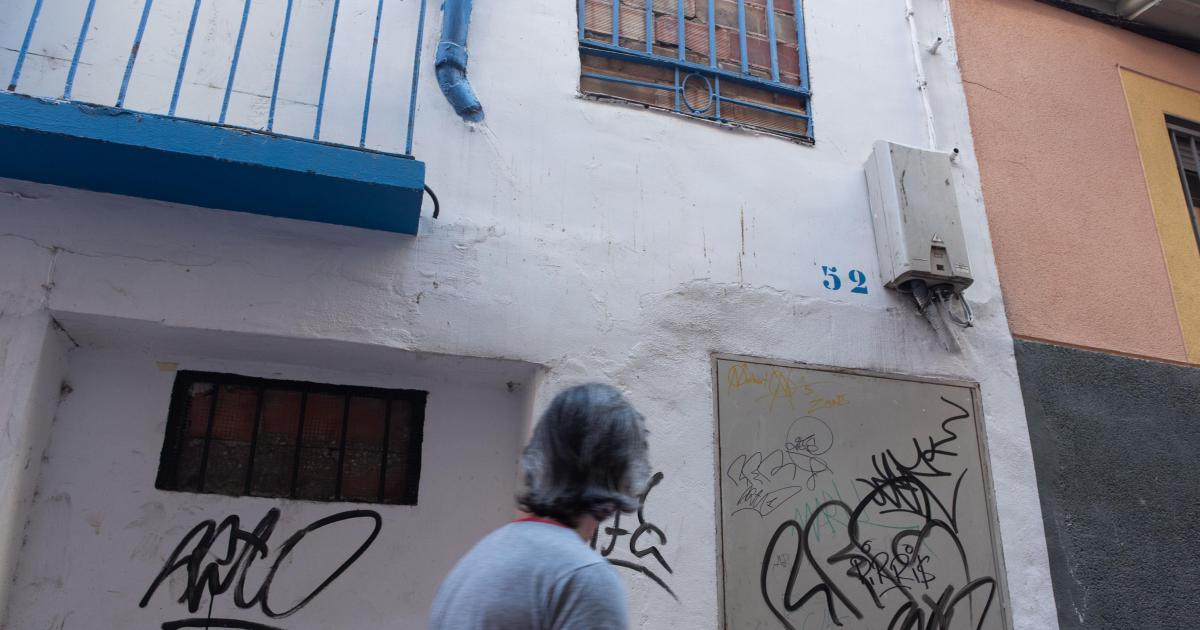He bought a flat in 2005 when banks were giving mortgages to those who could pay them and also to those who could not. Perhaps you thought that with your job as a municipal clerk you could cope with one of 112.000 euros, but what he did not have is that, before he came to live there, some squatters not only took over their house but ended up setting it on fire. Thus, he was left with a totally useless house, with the obligation to face the mortgage payment and continue living with his mother.
In addition, as a community member of the building, the City Council demanded that he repair it and began to impose sanctions for not meeting your requirements, with default interest included, as is usual in these cases. To this he had to add the taxes inherent to a home (such as the IBI) and expenses.
In the end, the man was suffocated by debts, with a salary of 1,200 euros and without any asset other than a devastated apartment, which he could not restore and whose value had gone from one hundred to zero due to a succession of squats.
The lawyer Javier Lagunas Navarro learned about his case and believed that he could have a way out: known as the second chance law. The lawyer considered that his client met all the requirements that the legislation requires to be considered a “Debtor in good faith” and the affected party decided to promote a bankruptcy in the face of his personal ruin and thus opt for what is called “exoneration of unsatisfied liabilities.” The bankruptcy administration was taken over by the lawyer Irene Romea.
Among the conditions required by law is that the contest has not been found guilty; that the interested party has not been convicted by final judgment for economic crimes, against workers or against the Public Treasury and Social Security; have tried to enter into an out-of-court payment agreement and have satisfied the credits against the estate. It is also required that there are no privileged credits, such as a mortgage or debts with Social Security.
Auctioned at 4,000 euros
The bankrupt owned a single property that was not a habitual residence because it was not habitable, that of Mariano Cerezo street. At that time, the mortgage guarantee in favor of the bank amounted to 82,963 euros and the amount claimed by the City Council for penalties was 7,300 euros. The appraisal report was valued for all purposes at 13,574 euros. The apartment was auctioned and acquired by a private individual for 4,000 euros, which were used to reduce the debt with the bank and leave it at 78,959.
And this is the amount that the Court of First Instance number 9 of Zaragoza has exempted you from paying as well as all the sanctions imposed by the City Council. In this way he has been free of debts due to the ruin of the house.
“We understand that only the situation of deterioration of the neighborhood and the lack of effective legal means that allow the Police and judges to act quickly and effectively, is exposing neighborhood residents to reach a situation similar to that of the client,” says the lawyer Javier Lagunas.
The affected person has had the support from your family to overcome this situation. «He bought the apartment with the intention of living and then the building was completely rehabilitated. Then they were the times (before Expo 2008) in which everything was going well and the City Council gave 65% of the aid to renovate the houses “, remembers his brother-in-law.
But the crisis arrived, the banks seized the houses –among them the other floors of this building, which belonged to real estate companies– and squatters went into action. “They started the meters, they made holes in the roof because they were raised to put the satellite dishes, there were fires, water leaks …, they left the five floors uninhabitable,” he says.
“They started the meters, they made holes in the roof to put the satellite dishes, there were fires, water leaks …”
He adds that one of the mercantile companies disappeared, another donated the apartment to a foundation – “and he scored a goal,” he highlights – and the bank stopped paying its share as a community member. “As the City Council only located my brother-in-law, as a natural person and owner with joint responsibility, it began to demand that he repair the damage and, of course, not being able to do so, it began to penalize him with surcharges,” explains the relative.
Acknowledge that They have been years of a very hard «crossing in the desert». “The light was turned on as a result of a consultation with the Torre Ramona consumer association and with the work of Javier Lagunas,” he says. «My wife has been nights without sleep, with nightmares. Now, thanks to this second chance, my brother-in-law can rebuild his life.
– .


